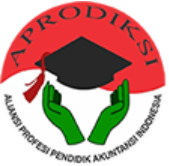PENGEMBANGAN SOFTWARE APLIKASI KOMPUTER BERBASIS EXPERT SYSTEM TECHNOLOGY DALAM PEMBELAJARAN AKUNTANSI
DOI:
https://doi.org/10.21831/jpai.v5i1.862Abstract
PENGEMBANGAN SOFTWARE APLIKASI KOMPUTER BERBASIS EXPERT SYSTEM TECHNOLOGY DALAM PEMBELAJARAN AKUNTANSI
The rapid growth of technology causes a lot of changes in education, teaching process and business sectors. Accounting plays an important role in business activity. To provide competent human resources in educational accounting, it needs instructional innovations using the advance of information and technology. Using Expert System Technology as an accounting educational media is an example for it. Expert system is one subset of Artificial Intelligence which can be used for decision making or problem solving with an expert based knowledge.
This article is intended to discuss about Accounting, Modern Learning, Expert System Technology, the Design of Expert System Technology, and the Use of Expert System Technology in Accounting Learning. By reading this article, everyone who related to educational process, is expected to make a quality improvement in accounting learning by using educational technology.
Downloads
How to Cite
Issue
Section
License
Authors who publish with Jurnal Pendidikan Akuntansi Indonesia journal agree to the following terms:
- Authors retain copyright and grant the Jurnal Pendidikan Akuntansi Indonesia journal right of first publication with the work simultaneously licensed under Creative Commons Attribution License (CC BY 4.0) that allows others to share the work with an acknowledgment of the work's authorship and initial publication in this journal.
- Authors can enter into separate, additional contractual arrangements for the non-exclusive distribution of the published version of the work (e.g., post it to an institutional repository or edit it in a book), with an acknowledgment of its initial publication in this journal.
- Authors are permitted and encouraged to post their work online (e.g., in institutional repositories or on their website) before and during the submission process, as it can lead to productive exchanges, as well as earlier and greater citation of published work.






